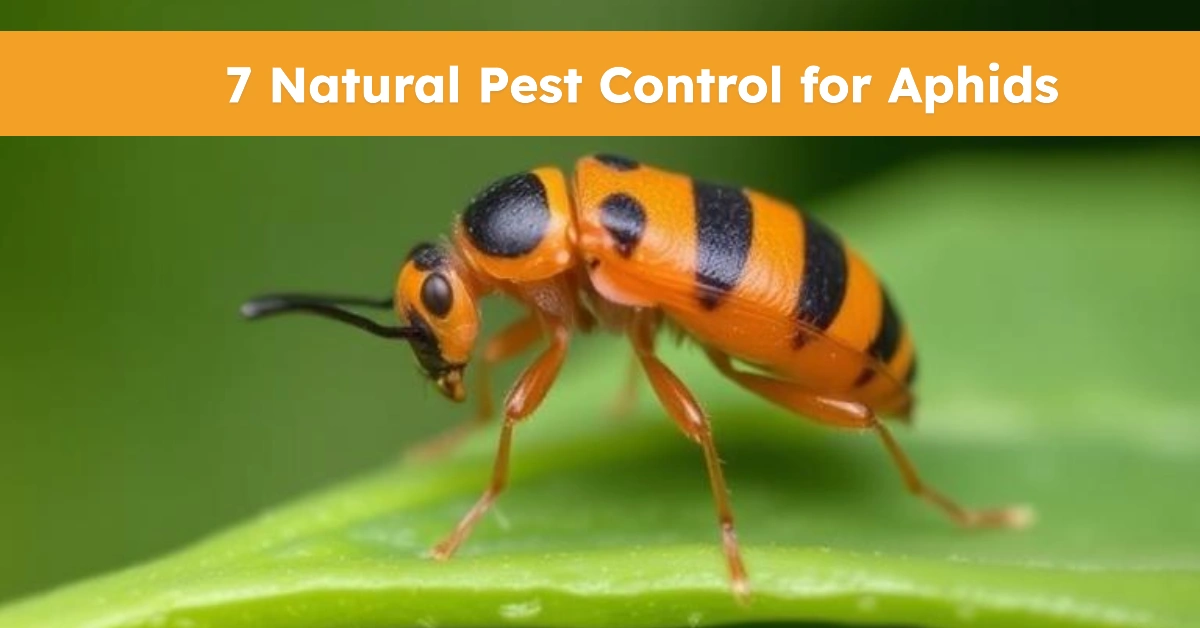As June 2025 ushers in the height of the growing season, gardeners and farmers alike face one of the most common and persistent garden pests: aphids. These tiny, soft-bodied insects can wreak havoc on plants by sucking sap from leaves, stems, and buds, leading to distorted growth, weakened plants, and the spread of plant diseases. With increasing awareness of environmental sustainability, many are turning to natural pest control methods to combat aphids without relying on harsh chemical pesticides.
Table of Contents
Understanding Aphids and Their Impact in June
Aphids thrive in warm weather, making June an ideal month for their population to explode. They reproduce rapidly, with a single female capable of producing dozens of offspring in a few days. The damage aphids cause is not just physical; they excrete a sticky substance called honeydew that attracts ants and promotes the growth of sooty mold on plants. This can further weaken plants and reduce photosynthesis.
11 Yellow Flower Weeds Invading Canadian Summer Gardens in 2025: How to Eliminate Them for Good
Why Choose Natural Pest Control for Aphids?
Traditional chemical pesticides can harm beneficial insects like pollinators and natural predators, contaminate soil and water, and potentially impact human health. Natural pest control offers a safer, sustainable, and effective way to manage aphid populations by enhancing the ecosystem’s balance.
Effective Natural Pest Control Methods for Aphids in June 2025
1. Introduce Beneficial Insects
One of the most effective natural controls for aphids is encouraging or releasing beneficial insects that prey on aphids, such as:
- Ladybugs (Ladybird beetles): Both adults and larvae consume large quantities of aphids.
- Lacewings: Their larvae are voracious aphid predators.
- Parasitic Wasps: These tiny wasps lay eggs inside aphids, eventually killing them.
Planting flowers like dill, fennel, and yarrow can attract these helpful insects to your garden.
2. Use Neem Oil
Neem oil, extracted from the neem tree, acts as an insect repellent and growth disruptor. It is biodegradable and safe for most beneficial insects when used properly. Spray neem oil diluted with water on affected plants early in the morning or late evening to avoid leaf burn.
3. Spray Insecticidal Soap
Insecticidal soaps disrupt the aphids’ cell membranes, leading to dehydration and death. These soaps are made from potassium salts of fatty acids and are safe for plants when applied correctly. Regular application every 5-7 days may be necessary during heavy infestations.
4. Introduce Companion Planting
Certain plants repel aphids naturally or mask the scent of susceptible plants:
- Garlic and chives: Repel aphids when planted near roses and vegetables.
- Marigolds: Emit scents that deter many pests.
- Onions: Help keep aphids away from nearby plants.
Companion planting also supports biodiversity, encouraging more natural predators.
5. Use a Strong Water Spray
For mild infestations, spraying plants with a strong jet of water can physically remove aphids from leaves and stems. This method is pesticide-free and can be repeated every few days as needed.
6. Apply Diatomaceous Earth
Food-grade diatomaceous earth is a natural powder made from fossilized algae. When sprinkled on plants, it causes abrasions on aphids’ exoskeletons, leading to dehydration and death. It is safe for humans and pets but should be applied carefully to avoid harming beneficial insects.
7. Maintain Garden Health
Healthy plants are more resistant to aphid attacks. Ensure your garden soil is rich in organic matter, plants are watered adequately, and avoid over-fertilizing with nitrogen, which can promote aphid reproduction.
Tomato Companion Planting 2025: Grow Better, Tastier Tomatoes with These 3 Smart Pairings
Conclusion
As we move through June 2025, embracing natural pest control methods for aphids is key to maintaining a healthy, vibrant garden. By integrating beneficial insects, botanical oils like neem, insecticidal soaps, companion planting, and cultural practices, gardeners can effectively manage aphid populations without compromising the environment or the health of their plants. This holistic approach not only controls aphids but also supports a thriving garden ecosystem for seasons to come.
If you want to protect your garden naturally this June, start implementing these eco-friendly pest control strategies today for a flourishing, aphid-free growing season.

1 thought on “7 Natural Pest Control for Aphids in June 2025: Effective Eco-Friendly Solutions for Your Garden”